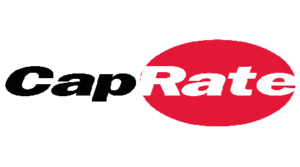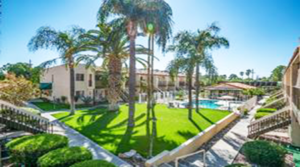Berkadia Tucson Handled $103 Million in Multifamily New Year Sales

TUCSON, ARIZONA – Multifamily assets remain the preferred investment vehicle of commercial real estate investors. With the upside to multifamily investments soundly outpacing that of other asset types, that doesn’t appear to be changing any time soon.
With no slowdown in sight, Art and Clint Wadlund of Berkadia Real Estate Advisors in Tucson closed on $102.76 million in five multifamily transactions since the start of the new year. The aggregate amount of these transactions is 1,139 units, or $90,220 per unit.
Sales include:
City Heights Apartments at 3700 N 1st Ave. in Tucson sold for $22 million ($80,882 per unit). The 272-unit complex in the central submarket of Tucson was renovated in Jan 2013 with studios one- and two-bedroom units. Amenities include a business center, clubhouse, pet park, fitness center, spa, and pool.
Rillito Village Apartments, LLC an affiliate of SB Pacific Group of Berkeley, California was the seller. The buyer, Catalina Apartments Tucson, LLC is a group of investors based in Marina Del Rey, California.
Arcadia Gardens Apartments at 7887 East Uhl Street in Tucson sold for $18 million ($90,000 per unit). The 200-unit complex in the eastern submarket of Tucson consists of 14 – two-story buildings and a unit mix of studios, one-, two- and three-bedroom units. Features include: high speed internet access, washer/dryers, air conditioning, heating, ceiling fans, smoke free, cable ready, storage units, wheelchair accessible, dishwasher, disposal, microwave, carpet, tile floors, views, walk-in closets, window coverings, balcony, patio and grills.
Arcadia Gardens Apartments, LLC an affiliate of Water Tower Realty of Chicago was the seller. The buyer, Arcadia Gardens Tucson, LLC is a group of investors based in Marina Del Rey, California.
Toscana Cove Apartments at 8665 E. Speedway Blvd. in Tucson sold for $17.91 million ($77,198 per unit). The 232-unit complex is in 11 – 3-story buildings in the eastern submarket of Tucson. The unit mix consists of studios, one-, two- and four-bedroom units with on-site laundry, covered parking, heated pool, jacuzzi, recreation room, exercise center, clubhouse, barbecue areas and is pet friendly.
The sellers, Tucson Properties NV, LLC and Prospero Property Ventures, LLC investment groups are based in Beverly Hills, California. The buyers, Chateau Park Investors, LLC and Toscana Investors, LLC investment groups are based in Newport Beach, California.
Yardz on Kolb Apartments at 1345 South Kolb Road in Tucson sold for $36.7 million ($89,512 per unit). Located in the eastern submarket of Tucson, the 410-unit complex with studios, one-, and two bedrooms and townhomes with two- or three- bedroom options. Amenities include on-site maintenance, controlled access/gated, business center, fitness center, playground, laundry facilities, clubhouse, 2 swimming pools, spa/hot tub, billiards, shuffle board, monthly resident events, on major bus lines, pet friendly, dog park, BBQ/picnic area, Spanish speaking staff, and package receiving, all within walking distance to shopping and banking.
The seller is 5th & Camelback Tucson, LLC and 22nd & Kolb, LLC based in Scottsdale. The buyer is MIMG Clix Yardz, LLC of Franktown, Colorado
McCormick Luxury Apartment at 201 S Stone Ave. in Tucson sold for $8.15 million ($326,000 per unit). The seller was Stone Avenue Homes LLC, an affiliate of Holualoa Companies, and the buyer was AHC McCormick LLC, an affiliate of Chicago-based AHC Management. Property transferred with an assignment of rents under a Government Property Lease Excise Tax (GPLET) agreement with the City of Tucson.
For additional information Art Wadlund should be reached at 520.299.7200 and Clint Wadlund can be contacted at 520.615.1100.
To learn more, see RED Comp #7528, #7552, #7481, #7484 and #7588.
 High Investor Demand and Moderate Economic Growth Expected to Maintain U.S. Real Estate Pricing in 2020
High Investor Demand and Moderate Economic Growth Expected to Maintain U.S. Real Estate Pricing in 2020  TUCSON, Ariz. –
TUCSON, Ariz. –